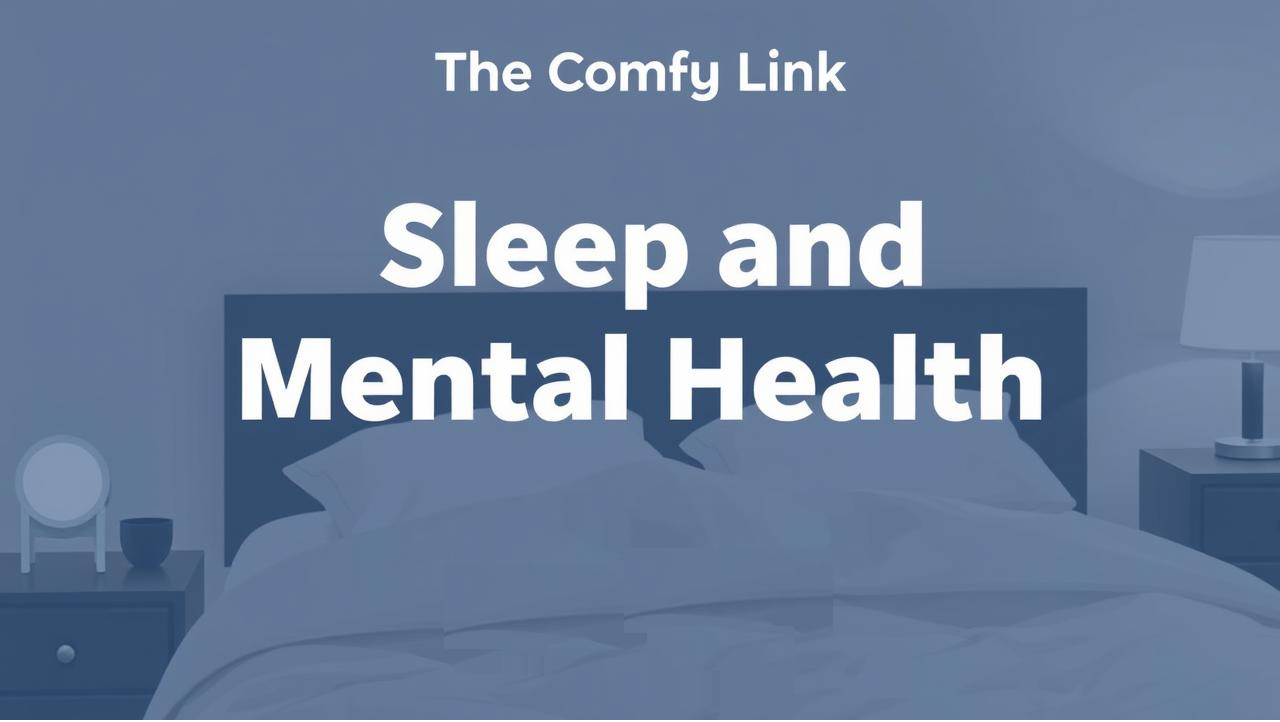Hello fitness lovers (and other creatures of the night!)! Let’s talk about something that often gets overshadowed by our punishing workout schedule and kale, smoothie adventures – SLEEP! That’s right, the time when our heads hit the pillow and we drift off into dreamland. But, did you know that sleep is the hidden champion of mental health? You heard right! Today, we are diving into the comfy link between sleep and your mental health, so grab your favorite blanket, sip that chamomile tea and let’s go!
The Big Sleep Deal
Let’s start with the basics. Sleep is more than a time to rest for the following day; it’s a necessary time for our bodies and minds to do a considerable amount of heavy lifting. When we think health, we usually think of nutrition and exercise – and rightly so! Yet, it’s vital to keep in mind that sleep is similarly significant in terms of how we feel mentally.
You may well have seen the impact of loss of sleep in your own life. After a sleepless night, you’ve likely awakened feeling sluggish, irritable and perhaps even a little foggy. That’s your mental wellness signaling a little red flag, and saying “Hey, I need some zzzz’s!”. A multitude of studies show over and over again that sleep deprivation leads to increased anxiety, depression, and a ton of cognitive acquisitions. Conversely, achieving the adequate quality and amount of sleep will raise mood, increase resilience, and solve many of life’s challenges with a smile. Sounds like a win-win, no?

Why Sleep Matters for Your Mental Health
1.Cognitive Processing:
Have you ever noticed that your mind doesn’t seem to connect the dots after a poor night’s sleep? That’s because sleep is crucial to cognitive function (e.g., memory, concentration, and problem solving). While getting restorative sleep, the brain is nice and busy sorting and storing information. So, if you want to feel fantastic about your next work presentation or remember where you left your car keys, you should be sleeping well.
2.Mood Regulation:
Sleep deprivation can wreak havoc on your mood! It can be difficult to feel positive if you are operating on empty! Sleep helps to regulate stress hormones in our bodies so that when we get to sleep, we wake up and feel refreshed and ready to take on the each day’s challenges, rather than feeling like a wobbly tower of Jenga blocks.
3. Emotional Resilience:
Think of sleep as your reset button for emotions. After every time you sleep, your brain goes through a process to evaluate emotions, helping to sort through the challenges and worries you encounter throughout the day. A good night of sleep can give you the emotional support you need to face stress in an unproductive manner, minimizing the chances of raising your voice at a loved one or becoming frustrated.
4. Physical Effects on Mental Wellness:
It really is as simple as this – when your body feels positively, your mind feels positively. Sleep helps to regulate appetite and hormones, which impacts weight management and body health. When you are aligned physically it supports your mental health and determines a positive life cycle.

Tips for Getting Those Zzz’s
Now that we understand how important sleep is for mental clarity and emotional well-being, let’s cover some friendly tips to be sure that you’re getting your beauty rest:
- Create a Sleep Sanctuary: Make sure your bed feels like an escape! Get comfy pillows, soft bedding, etc. Cool and dark room is always helpful too. A little ambiance goes a long way.
- Establish a Wind-Down Routine: About an hour before bed, begin the wind-down. You may read, do yoga, or just relax – let your brain know it’s time to relax.
- Limit Screen Time: The blue light emitted by screens can disrupt your melatonin levels, making it more difficult to fall asleep. Instead of a Netflix binge watch, try light reading before bed.
- Watch Your Caffeine Intake: The caffeine that many of us regularly depend on for energy. Caffeine never leaves your body as quickly as we would like, so try not to have it especially in the afternoon and evening.
- Stay Active: When you exercise regularly, you may find that the quality of your sleep improves. Be sure to break a sweat during the day to help you fall asleep at night!
To Round It All Up
When you find yourself tossing and turning, or hitting the snooze button just once too often, please take solace in the idea that sleep is not just about restoration of energy; it is also a cornerstone of mental health. Commit to those hours of sleep, and in turn, you will experience improved thinking, improved mood, and increased quality of life.
So, there you have it, my friends! Sleep well, dream big, and take care of your mental wellness tips from comfy link sleep and your mental health. Together, let’s harness the power of sleep together in building a healthier body and mind. Okay, who is ready for a nap?
Learn more articles : Technology That Affects Your Sleep Health


